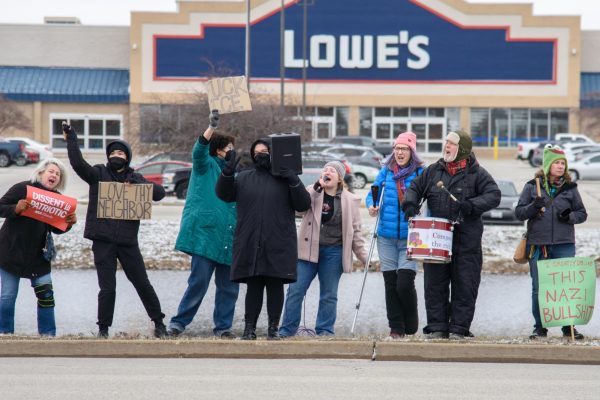Winter weather still a mystery
Sep 8, 2004
Last updated on May 11, 2016 at 03:30 p.m.
For those who were hoping the cooler weather in August would make January sizzle, they will most likely be disappointed, according to weather experts.
“Climate doesn’t remember,” said Walter Robinson, professor of atmospheric sciences, adding that the cool summer weather historically has no effect on making the following winter warmer or cooler than normal.
“Unfortunately, we can’t predict too far in advance,” Robinson said. “Not everything in nature can be predictable. That’s not going to change.”
Robinson said there is currently no basis for predicting a full season, but weather predictions in the tropics are more reliable on longer time scales.
Get The Daily Illini in your inbox!
The main issue in weather predictions is not the slow moving cycles, but the day-to-day weather systems, which are “fundamentally unpredictable.”
Illinois was not alone in its cooler summer weather. But according to Jim Angel, climatologist for the Illinois State Weather Survey, the whole eastern United States was affected. A trough of low pressure over a large part of the East Coast caused lower temperatures, and a ridge, an area of high pressure over the Northwest, made the temperatures rise.
“Frequent intrusions of Canadian air have dominated the region,” Angel said.
The jet stream, which appears as a curvy line across the continent on weather maps, usually stays in Canada for the summer months, Robinson said.
However, this summer the flow pattern of the jet stream moved to a location in the northern United States and stayed for several weeks.
“That brings the cooler, drier Canadian air into our area that we usually don’t see,” Angel said. “It’s nice.”
According to a press release from the Farmer’s Almanac, the long-range weather predictions call for a variable winter with unseasonably high and low temperatures.
Angel said the Farmer’s Almanac looks at the entire Midwest, not just Illinois.
“Someone will get six to eight inches of snow, probably in Michigan,” Angel said.
Ed Kieser, meteorologist for radio station WILL-580, said it is hard to make forecasts more than a month in advance.
The National Weather Service (NWS) reported there are equal chances of having above, equal or normal temperatures this winter, Kieser said. As far as precipitation, the NWS predicted the winter would be slightly drier than usual.
For the climatological summer, which includes June, July and August, Champaign-Urbana only reached 90 degrees five times. Kieser said the area usually reaches these temperatures an average of 20 times each summer. The high was 91 degrees in June and temperatures never reached 90 degrees in August.
Both Angel and Robinson said there is some evidence that an “El Nino” could occur this winter. “El Nino” is a condition that disrupts the normal interaction between the atmosphere and the ocean, causing the Pacific Ocean to warm near the western coast of South America.
“But we are pretty far away from the tropics,” Robinson said, adding that there would be little effect on Illinois this winter.





